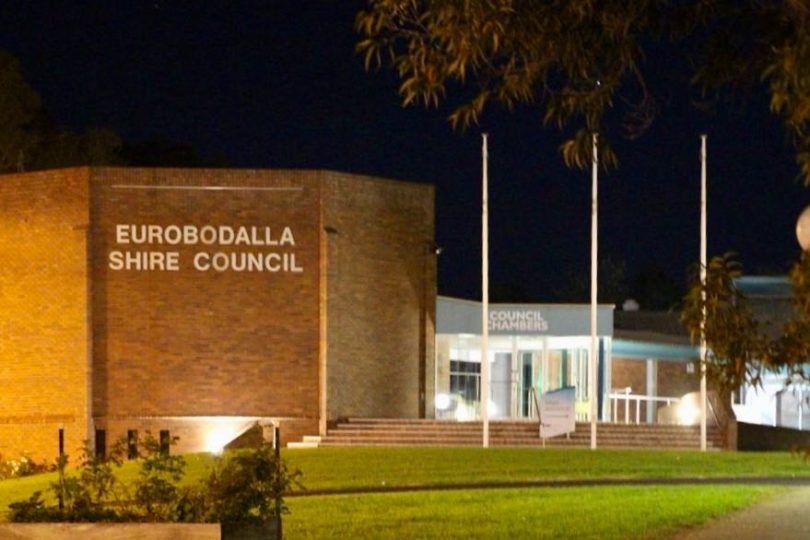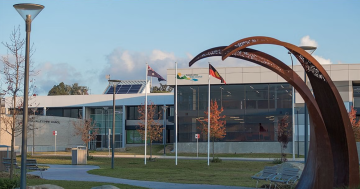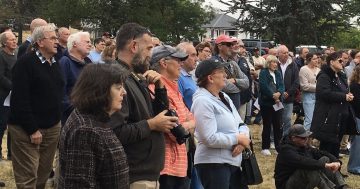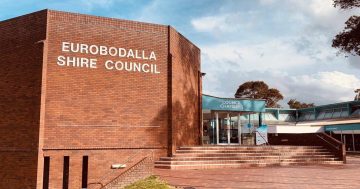
Eurobodalla’s councillors have been reviewing council’s financial situation. Photo: Alex Rea.
Eurobodalla Shire Council wants to act now to try to avoid a special rate rise in the future, a fate that many other councils are facing across the state.
Seventeen councils in NSW are applying for a special rate variation this year, including Bega Valley Shire and Snowy Monaro Regional Councils.
Eurobodalla’s councillors and senior staff recently spent two half days reviewing the Eurobodalla’s financial situation to identify a path forward for the shire.
“Living within our means starts now,” council’s general manager Warwick Winn said.
“Careful analysis will identify our position, but we are a medium-sized council trying to do the work of a large council and that is not sustainable.”
The council has $1.7 billion in assets, an annual turnover of $140 million, delivers dozens of services and has over 600 employees, which is equivalent to a medium-sized ASX-listed company, Mr Winn said.
He ordered a financial health check when he started the job and identified the issues of large future projected deficits, current debt and a capital program that was too large to manage.
“We are certainly grateful for the NSW Government grants that have allowed us to build new infrastructure for the community and to build back better after the fires and floods. But the time has come to look carefully at our grants strategy,” he said.
“We must be smart and chase grants that can pay for work already scheduled and allow our staff to catch up on work already on the books.”
He said the 2024 works program would be reprioritised. In the years after, council would propose reducing its capital works program to focus on finishing grant-funded projects, as well as maintenance and renewal of assets like roads, public toilets and recreation facilities.
“This is how we will start living within our means and hopefully avoid service reductions or having to pursue special rates variations,” he said.
Mayor Mathew Hatcher said councillors were determined to do something about the financial challenges they inherited.
“It means we’ll need to have brave conversations with residents, explaining why work they’d like to see right away needs to wait while other priorities are finished,” he said.
“With discipline and sound management, this council can set up future councils and the community for a better financial future.”
Mr Winn also called for action from the NSW Government, saying he believed its rate pegging arrangement for councils was broken.
“Last year, with clear knowledge of rapidly escalating costs, IPART issued NSW councils with only a 0.7 per cent rate peg. By comparison, CPI was 6.1 per cent,” he said.
“The NSW Government also needs to examine the complex grants process councils are forced to use to fill gaps in essential community infrastructure.
“The grants don’t address the cost of maintenance, operation, or depreciation, are often tied to a council contribution, and are difficult to manage.”














